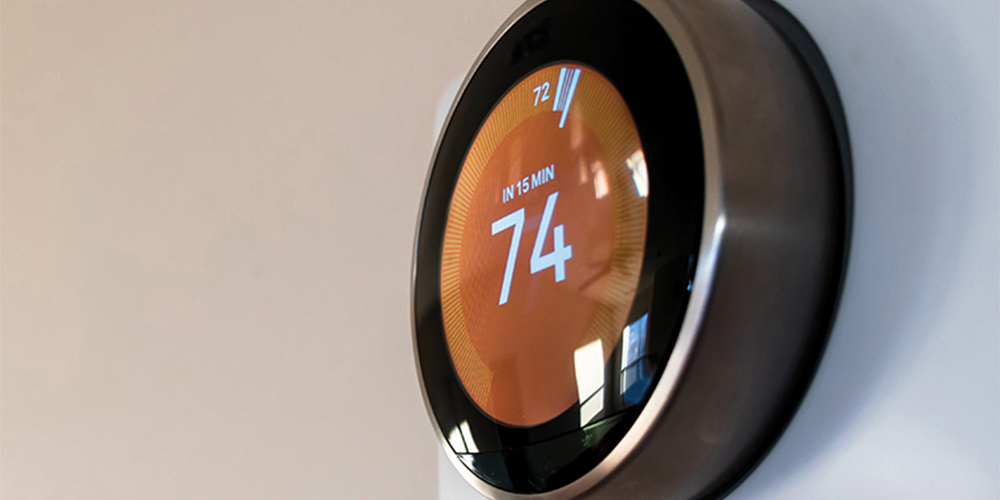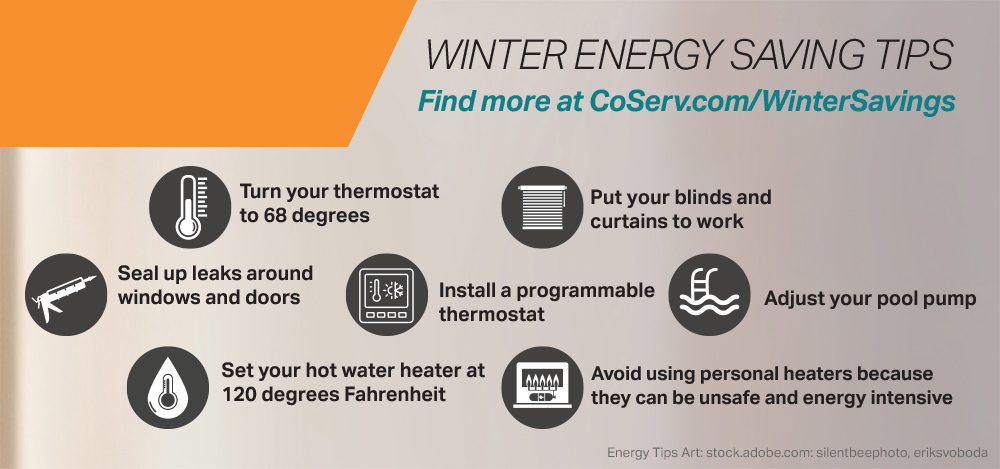The biggest factors that could affect your winter energy bill

Texas is known for sweltering hot summers, but January and February can also be downright frigid so Members can also expect high electric bills in those months.
As we reported last month, the cost of natural gas has steadily gone up, increasing the cost of wholesale electricity nationwide. That means this winter could be more expensive than in years past.
Weather is the biggest factor for determining utility bills. In the winter, another important factor is the type of heating system in the home.
Homes with conventional electric coil heaters could have large spikes in usage during the cold months. Why? Because heating coils require the largest amount of electricity to operate of any appliance in the home, said CoServ’s Energy Efficiency Supervisor Josh Sterling. If you have a conventional electric coil heater, lower your thermostat 5 to 7 degrees when leaving the home for more than four hours to save energy.
Heaters that use a heat pump are 50 percent more cost efficient than traditional heaters because they use the air outside to heat your home, Josh said. The exception to that is when the temperature gets below 35 degrees, the outside air is too cold for the heat pump so the supplemental heating coils will kick in.
That’s why it’s important to maintain a consistent temperature in your home if you have a heat pump – even when you’re not home – so it doesn’t have to work as hard, reducing the likelihood that the coils kick on.

And remember, for every degree above 68 degrees, your heating costs go up about 5 percent.
At first glance, a space heater might seem like a great way to heat the room you’re in. But this is deceptive and could end up costing you more in the long run. Running a 1,500-watt space heater for 12 hours a day for 30 days could cost more than $60 per month.
“Some people will try to use more than one, or have them in multiple areas,” said Energy Efficiency Supervisor Josh Sterling. “It’s much more efficient to heat your home to 68 degrees in the winter and let your central system do what it’s designed to do.”
Space heaters can also be dangerous, especially for pets and small children. By contrast, an electric blanket might use up to 200 watts (depending on the setting), or about 87 percent less power than a space heater.

